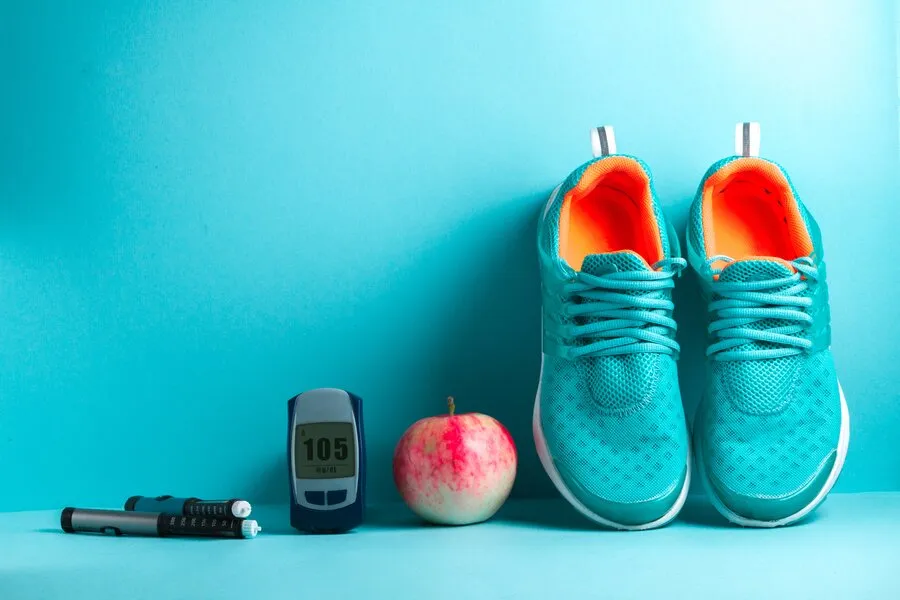Understanding Diabetes

The prevalence of diabetes in Cyprus has reached 9.7%. Diabetes is a disease that occurs when your blood glucose, also called blood sugar, is too high. Glucose is your body’s main source of energy. Your body can make glucose, but glucose also comes from the food you eat. Insulin is a hormone made by the pancreas that helps glucose get into your cells to be used for energy. If you have diabetes, your body doesn’t make enough or any insulin or doesn’t use insulin properly. Glucose then stays in your blood and doesn’t reach your cells. Diabetes raises the risk of damage to the eyes, kidneys, nerves, and heart. Diabetes is also linked to some types of cancer. Taking steps to prevent or manage diabetes may lower your risk of developing diabetes-related health problems.
The diabetic diet is recommended and highly beneficial if you have any of the following conditions:
- Pre-diabetes
- Type 1 diabetes
- Type 2 diabetes
- Gestational diabetes
- Latent Autoimmune Diabetes in Adults (LADA)
- Stress induced diabetes
The importance and benefits of diabetes diet
Elevated blood sugar can adversely affect several organs of the body. This includes brain, eyes, heart, nerves, intestinal tract, kidneys and nerves of upper and lower limbs. The damage caused to these organs may become irreversible with time; for example. Correct nutrition guidance is essential to maintain these organs healthy.
Once your blood sugar is controlled through an appropriate diet and exercise schedule, you can delay the complications that may arise from it. Your nutritionist can provide you diabetes friendly meal options, food options for social gatherings, as well as tips for lifestyle modifications. This diet has high chances of reversing pre-diabetes when the diet is properly followed. With correct nutrition regime, several researches have stated that one can expect a significant drop in HbA1c (i.e. glycosylated hemoglobin) which is an average of blood sugar of 3 months.
Diabetic diet vs normal diet
The general population usually consumes far more carbohydrates than is required in a daily routine. When these carbohydrates are refined (white flour-based), they increase blood sugar. So the major change from a general diet to a diet for diabetes control is the avoidance of white products. This involves avoiding biscuits, breads, donuts, pizza, pasta, noodles, etc.
On the other hand, it is also important to replace refined carbohydrates with complex carbohydrates, which include whole grains like oats, barley, quinoa, whole wheat, and cereal grains. Along with cutting down on refined carbohydrates, it is also essential to add more proteins to the diet. A diet including fresh fruits and vegetables, no added sugar, no refined carbs, high in proteins, and low in saturated fats is the key to diabetes control.
Questions I get asked by diabetic patients
Alcohol can do both, depending on amounts and types. Moderate amounts of alcohol may increase levels, especially if they are higher in carbohydrate drinks such as beer or sweeter mixed drinks. Too much alcohol can cause low blood sugar by suppressing the liver’s ability to release glucose into the bloodstream; the liver preferentially breaks down alcohol (treated like fat) before other nutrients. It can take more than an hour to break down one drink.
Being healthy is much more than just sugar vs. sugar substitute; it involves taking a close look at your total lifestyle. In general, your food intake should consist of unrefined, whole foods, with an emphasis on vegetables. Starches should be kept in smaller portions. An active lifestyle is most important. As for sweeteners, stevia, in my opinion, would be a better choice. It is plant-derived, not chemically altered.
Carbohydrate counting is helpful for fine-tuning your blood sugars. Carbs turn into sugar in our bodies anywhere from 5 to 120 minutes after eating. The primary carbs to limit are refined and simple, such as white flour and pasta. If, after following the general guidelines for a healthier lifestyle for management, you are still not in control, then counting carbohydrates may be for you. The cons of counting any food are that it can feel like dieting to many of us.